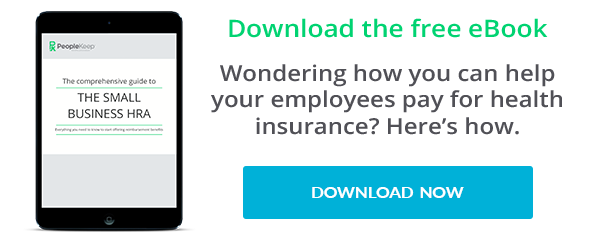Top 5 Challenges for Health Insurance Brokers in 2014
Brokers • July 2, 2014 at 4:49 PM • Written by: Christina Merhar
Health care reform has brought on new challenges and opportunities for health insurance brokers. What are the top challenges facing health insurance brokers, agents, and producers nationwide?
Top 5 Challenges for Health Insurance Brokers
A recent broker survey found the top issues facing brokers in 2014 are:
-
Rising health care costs affecting client decisions
-
Understanding the impact of health care reform
-
Remaining relevant
-
Diversifying benefits offerings
-
Client uncertainty about health care reform
Let's look at the top issues, and discuss ideas for opportunities or solutions.
1. Rising health care costs affecting client decisions
The rising costs of health care are impacting group health insurance premiums. The notion that premiums increase just about every year is nothing new. Since the early 1980s, group health insurance costs have been on the rise. But the aggregate effect is quite alarming. From 1999 to 2013, without accounting for the annual benefit reductions, the cost to cover a single employee more than doubled from $2,196 per year in 1999 to $5,884 per year in 2013. Family coverage nearly tripled from $5,791 per year in 1999 to $16,351 per year in 2013.
Many clients, especially small and medium-sized employers, can no longer keep up with the annual increases and are looking for more affordable health insurance solutions. Others have already dropped group health insurance, but they would offer health insurance if they could afford it.
Opportunity for Brokers: Offer diversified products that solve the cost challenge. One solution is "Pure" Defined Contribution, where the employer reimburses employees for individual health insurance. Defined Contribution controls cost, helps brokers reach an untapped market, and is a win for employers, employees, and brokers.
2. Understanding the impact of health care reform
The impact of health care reform is still uncertain. But the picture is becoming clearer every day. Compared to a year ago, brokers have a better grasp on their role with the Health Insurance Exchanges and commission structures.
Opportunity for Brokers: Stay persistent. As commissions from major medical decrease, brokers who diversify product lines and create a niche for themselves will continue to thrive.
3. Remaining relevant
Many brokers worry that the "self-service" nature of the Exchanges will make brokers irrelevant. However, just the opposite is true. Many reports find that brokers are more important now than ever. Employers and individuals are confused about health care reform and health insurance, and increasingly turning to brokers for expertise and guidance.
Opportunity for Brokers: Stay relevant by becoming an expert on more than major medical. Stay up to date on health care reform, innovative cost-saving solutions, and compliance. This helps service current clients, and fosters word of mouth referrals from happy clients.
4. Diversifying benefits offerings
With many new solutions available, finding the right solution, product, and partner is a challenge - but ultimately key to success.
Solution: Do your research about solutions, products, and providers. For example, if you're researching Defined Contribution know what to look for in a provider.
5. Client uncertainty about health care reform
Clients and prospects still feel uncertain about health care reform. Much of this uncertainty stems from either cost concerns ("how will health reform impact our bottom line?") and/or lack of education ("what are the business's new requirements under the law?").
Opportunity for Brokers: Brokers can help clients with these concerns by 1) bringing new cost-saving solutions to the table and 2) being an expert adviser on navigating health care reform.
Do you agree with these top challenges facing brokers? What is missing from the list?
Do you agree with the opportunities? What would you add or change?
Join the discussion with a comment below.

